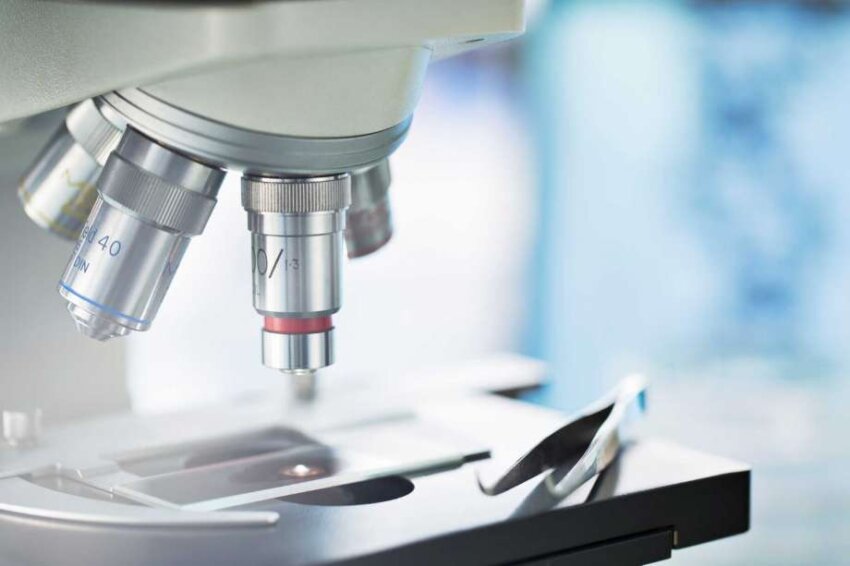Contact: Steven Lee, 210-450-3823, lees22@uthscsa.edu
Content contributed by Juanita Alvarez-Hernandez
SAN ANTONIO, March 7, 2024 – The University of Texas Health Science Center at San Antonio (UT Health San Antonio) has secured approximately $16.4 million in funding from the Cancer Prevention and Research Institute of Texas the past six months, attracting three top cancer researchers and advancing child and adolescent cancer research.
A primary driver of San Antonio’s leading $44.1 billion health care and biosciences sector, UT Health San Antonio is the largest academic research institution in South Texas with an annual research portfolio of $413 million, and accounts for more than 70% of National Institutes of Health research funding to all institutions locally.
Simon Gayther, PhD, a renowned cancer researcher at Cedars-Sinai Medical Center whose breakthrough studies have focused on understanding the underlying causes of ovarian cancer initiation and development, will join Mays Cancer Center and the Department of Medicine at UT Health San Antonio next month, from $6 million in CPRIT funding approved Aug. 16. Also that month, $999,999 was approved by CPRIT to expand a program of human papillomavirus (HPV) vaccination among survivors of childhood cancer.
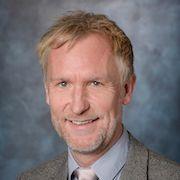
Another $6 million CPRIT recruitment award, approved in February, will bring Anna Malkova, PhD, from the University of Iowa to UT Health San Antonio on April 8, joining as a full professor in the Department of Biochemistry and Structural Biology. A $2 million CPRIT recruitment grant already has brought Yu Luan, PhD from Northwestern University, joining as an assistant professor in the Department of Cell Systems and Anatomy and an investigator with UT Health San Antonio’s Greehey Children’s Cancer and Research Institute.
And Katsumi Kitagawa, PharmD, PhD, associate professor in the Department of Molecular Medicine in the Joe R. and Teresa Lozano Long School of Medicine at UT Health San Antonio and investigator in the Greehey Institute, received $1.4 million to advance research into Ewing Sarcoma, the second most common primary malignant bone tumor in children and adolescents.
Gayther will join as professor of medicine, Mays Family Endowed Chair in heritable oncogenesis and inaugural director of the school’s Center for Heritable Oncogenesis. Oncogenesis refers to the induction or formation of tumors.
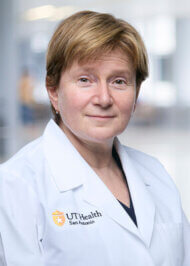
He will be part of the Population Science and Prevention Program of Mays Cancer Center, one of only four National Cancer Institute-designated Cancer Centers in Texas. He will devote most of his effort to his internationally acclaimed research program in genetic epidemiology and functional biology of risk variants associated with ovarian, breast and prostate cancers.
“Dr. Gayther will add transformative expertise to our cancer-focused programs, help recruit outstanding investigators to further strengthen our Population Science and Prevention Program, help achieve our institutional vision of becoming a premier research center in understanding the molecular bases of oncogenesis, and bolster our outreach and education in cancer science, and the discovery and development of novel therapeutics,” said Patrick Sung, DPhil, professor of biochemistry and structural biology, director of the Greehey Institute and interim executive director of Mays Cancer Center.
Gayther’s particular emphasis will be on explaining the multi-factor basis of familial and sporadic breast and ovarian cancer stemming from mutations in the tumor suppressor genes BRCA1 and BRCA2 – and how ancestry, environmental exposures and lifestyle affect cancer susceptibility, progression and treatment outcome. He also will mentor graduate students in the PhD and MD/PhD tracks from the school’s Integrated Biomedical Sciences Graduate Program.
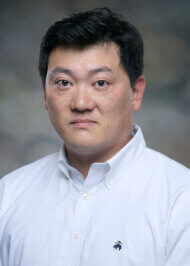
Malkova will become the Mays Family Endowed Chair in DNA Repair Genetics and a member of both the Greehey Institute and the Cancer Development and Progression Program of Mays Cancer Center, as well as a mentor in the Integrated Biomedical Sciences Graduate Program.
“We are thrilled to have Dr. Malkova join our faculty and add an exciting new dimension of research to our overall efforts in DNA repair and cancer biology,” said Reuben Harris, PhD, professor and chair in the Department of Biochemistry and Structural Biology and esteemed Howard Hughes Medical Institute Investigator. “This will stimulate many new collaborations and undoubtedly lead to new cancer therapy insights.”
Luan’s laboratory is dedicated to the detection and characterization of epigenetic and chromatin topology alterations during tumorigenesis (the formation or production of tumors), and focused on developing algorithms and computational tools to explain the impact of genetic variants and transposable elements on human diseases.
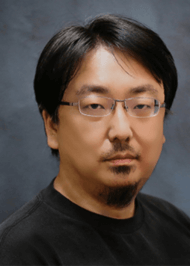
“Dr. Luan is key to realizing our institutional goal of a world-class blood cancer research program and is expected to help drive the development of new, efficacious treatment regimens for pediatric Ph-like ALL and relapse prevention,” said Christi Walter, PhD, professor and chair in the Department of Cell Systems and Anatomy. “Luan’s research will synergize with existing investigators and programs for the clinical translation of findings, nucleate team science projects and grant applications and advance our training and mentoring missions.”
Kitagawa’s research targets therapy for chromosome instability in Ewing Sarcoma cells, as these cells display frequent chromosome gains or losses. How this instability occurs is unknown, though Kitagawa’s focus is on dysfunctional centromeres that mediate chromosome segregation.
“CPRIT’s support will enable Dr. Kitagawa to develop novel therapeutic strategies for treating Ewing Sarcoma, a common pediatric bone cancer,” Sung said.
The University of Texas Health Science Center at San Antonio (UT Health San Antonio) is one of the country’s leading health science universities and is designated as a Hispanic-Serving Institution by the U.S. Department of Education. With missions of teaching, research, patient care and community engagement, its schools of medicine, nursing, dentistry, health professions, graduate biomedical sciences and public health have graduated more than 42,550 alumni who are leading change, advancing their fields and renewing hope for patients and their families throughout South Texas and the world. To learn about the many ways “We make lives better®,” visit UTHealthSA.org.
Stay connected with The University of Texas Health Science Center at San Antonio on Facebook, Twitter, LinkedIn, Instagram and YouTube.
The Mays Cancer Center at UT Health San Antonio is one of only four National Cancer Institute-designated Cancer Centers in Texas. The Mays Cancer Center provides leading-edge cancer care, propels innovative cancer research and educates the next generation of leaders to end cancer in South Texas. To learn more, visit https://cancer.uthscsa.edu.
Stay connected with the Mays Cancer Center on Facebook, Twitter, LinkedIn, Instagram and YouTube.
The UT Health San Antonio Joe R. and Teresa Lozano Long School of Medicine is listed among U.S. News & World Report’s best medical schools, ranking in the top 30% nationwide for research. To learn more, visit https://uthscsa.edu/medicine/.
The Greehey Children’s Cancer Research Institute is one of only two institutes in the United States dedicated solely to pediatric cancer research. Its 18 laboratories focus their strengths on cancer genomics, DNA repair, RNA biology and drug development in finding new and less toxic treatments for childhood cancers.


